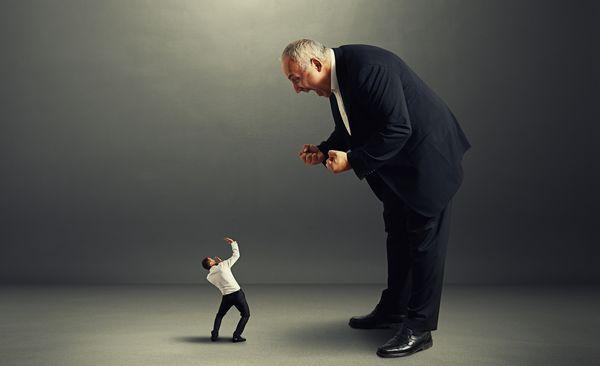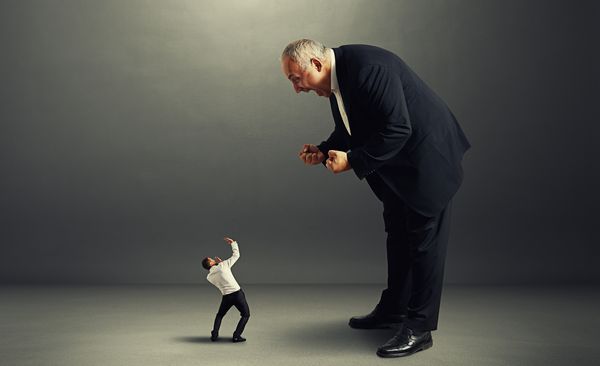Here is a question that's been on my mind for a while:
"If the employees and management of a company cannot align culturally, how on earth can they be expected to align culturally with their customers?"
People need to feel they belong. To be part of something bigger than themselves. To be a worthy member of a community with a shared purpose. It's always been this way, and I guess for humans it always will.
The digital revolution has exposed this human need beyond our traditional comprehension. Self branding is king, social media and the new digital "likes" economy, has rocketed this topic into hyperspace.
It's all bullshit really, but then again it's not. Cultural relevance and alignment is actually instrumental to how we view ourselves and how we perceive others. It can unite us as it does with passion for 80,000 people at a music festival, or it can separate us as we have seen recently with the rise of the far right across Europe and the US in response to immigration, radicalism and Islamophobia.
It can simply distress an ageing father, making him feel distant from his young children as he struggles to comprehend the cultural relevance of Pokémon Go.
So what's this got to do with design, consultancy or business in general I hear you ask? Well a hell of a lot actually because humans are humans no matter where you find them. I've noticed more and more in the work I do that cultural relevance and cultural alignment is a big deal, one of the most important factors that define success or failure.
However, I still find it troubling to read article after article on digital transformation that focuses on new innovation, faster speed to market and above all better customer experience. These goals are of course admirable and important but I believe destined to fail if the culture of the company is rotten at the core.
There are two important cultural goals I believe critical to the success or failure of any company:
1. Cultural alignment with your customers:
- Do you feel your company has a strong sense of togetherness with your customers?
2. Cultural alignment with your work colleages:
- Do you feel the employees of your company have a strong sense of togetherness?
Here's an example of the first cultural goal:
Recently I was talking to a client of Futurice and they said to me in a meeting that the company was full of arrogant pricks, admitting the unbalanced nature of relationship they had with their customer. Everyone in the room nodded in agreement and it caused a few giggles. I laughed too, but I also realised at that moment the root of the problem. I may be an idealist, but I think it's more important that companies address these deep seated cultural issues ahead of any other digital transformation work they may be investing in. At best admitting the problem and working on this change in parallel. Besides, at the end of the day customers will still go elsewhere if the overall brand perception and cultural stance of the company does not align with them in a positive way.
To be perceived as culturally relevant in the eyes of your customer in this digital age is critical to how your company’s products and services are appreciated. Old school marketing used to be about constructing messages and promises to the customer, helping them feel they are buying into a shared belief. Now the promise is in the product and more importantly the cultural relevance and alignment needs to be present in the people who make the product and deliver it to their like minded customers.
I buy Apple products because I also belief rightly or wrongly that the people who work at Apple are more culturally aligned to my own values than that of Samsung or Lenovo. Apples "Think Different" message sealed it for me as it talks about the crazy pioneers who push the boundries. I like that, I align with that!
However, being also a child of the late 60's, I was brought up to believe that quality and longevity are intrinsically linked and I've always strived to own personal items that were built to last. I'm now growing tired of Apple's money making "locked in" ecosystem and their apparent desire to build in device obsolescence for its own business gain. Not what I align with culturally.
An example of the second cultural goal happened to me while working in Asia:
We were designing a new TV service and had spent months in Korea. Our team knew the clients team very well and we got on great, often socialising and enjoying the drinking culture in Seoul. One night we are waiting in one of the offices for members of their team to join us on for one of our many after work sessions. As I waited I realised people were anxious and clearly frustrated. I asked what's up? One guy pointed to the door of the big boss. It was around 8.30pm and the big boss was still in there. This meant that others were unable to leave before him and were all killing time till he appeared and left. He did appear closer to 9pm and walked out without saying a word. Everyone grabbed their stuff and followed.
Now I'm no psychologist but I'm guessing that this kind of inequality and cultural mis-alignment does not help companies to do great work. I'm assuming that it causes all manner of undesirable behavior, distrust, back stabbing, employee disengagement and churn.
The big question in my mind is; if the employees and management of a company cannot align culturally, how on earth can they be expected to align culturally with their customers?
So in summary we are in the age of digital transformation. Companies rush head over heels to stay in the game and retain their relevance. New service innovations, new ways of working, incubators, accelerators, startups, new tools and methodologies are all tried out along the way, some succeed some don't.
I'd argue that the focus for real transformation needs to be much closer to home. A transformation is needed in the very people who lead and govern large organisations. Seeded down to all employees to create a shared vision and belief system for what they are all set out to achieve. Shared values and consistent behavior is needed in every interaction with each other and especially with their end customers. Old school leadership hierarchies and siloed thinking need to be destroyed. There's no cultural space anymore for the "big bad boss" asshole who uses fear as a tool to motivate. A radical mindset change is needed from "my success" to our success.
Let's start from the ground up and fix the foundations for succesful business. I see companies just like families. You can be dysfunctional, non communicative, bitter and toxic for all the members involved or in contrast harmonious, respectful, supporting and loving.
What kind of family do you want to be?
- Key questions about cultural alignment
- What is cultural alignment?
- Cultural alignment refers to organisation's or company's cultural goals, which are critical to the success or failure of any company. For any organisation, there are at least two critical components, which are cultural alignment with the customers and cultural alignment with the co-workes and colleages.
- Why is cultural alignment important?
- Organisation's change and digital transformation efforts tend to focus primarily on new innovation, faster speed to market and above all better customer experience. The cultural aspects are often neglegted. Cultural alignment is also instrumentally important in order for an organisation to succeed in their change journey.
- Anton SchubertPrincipal Consultant / Design Strategist


